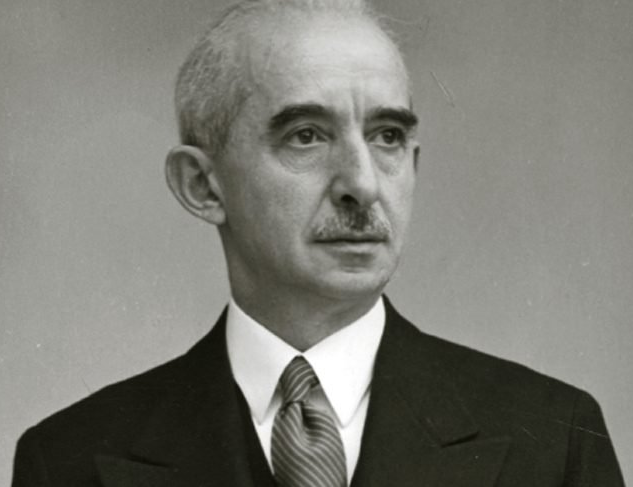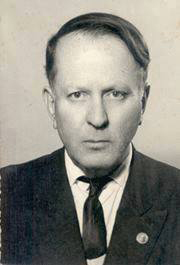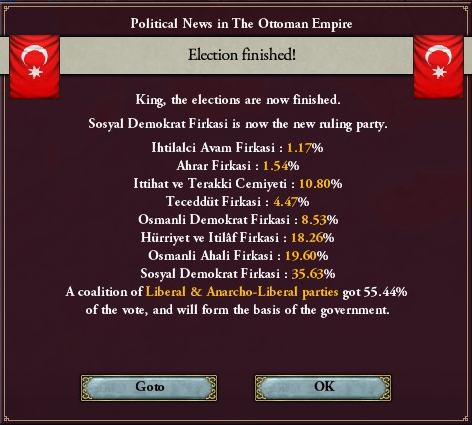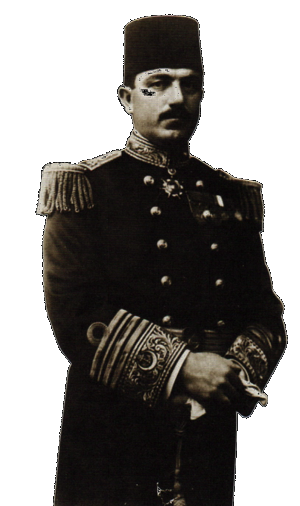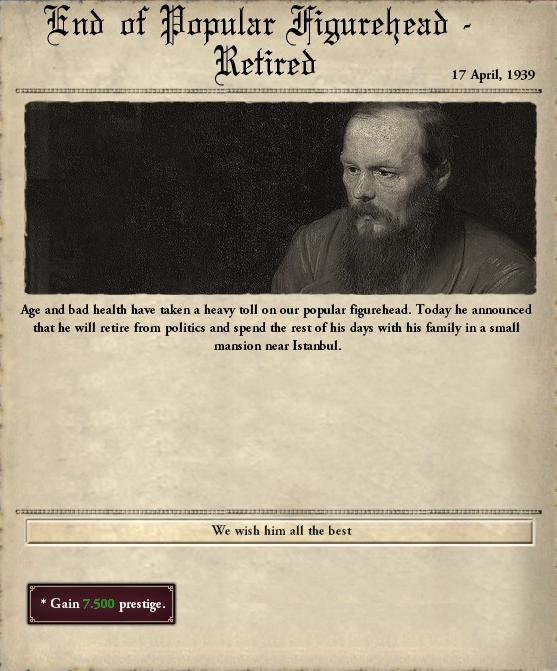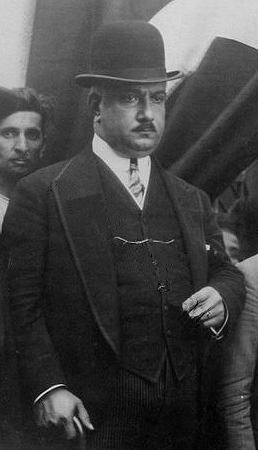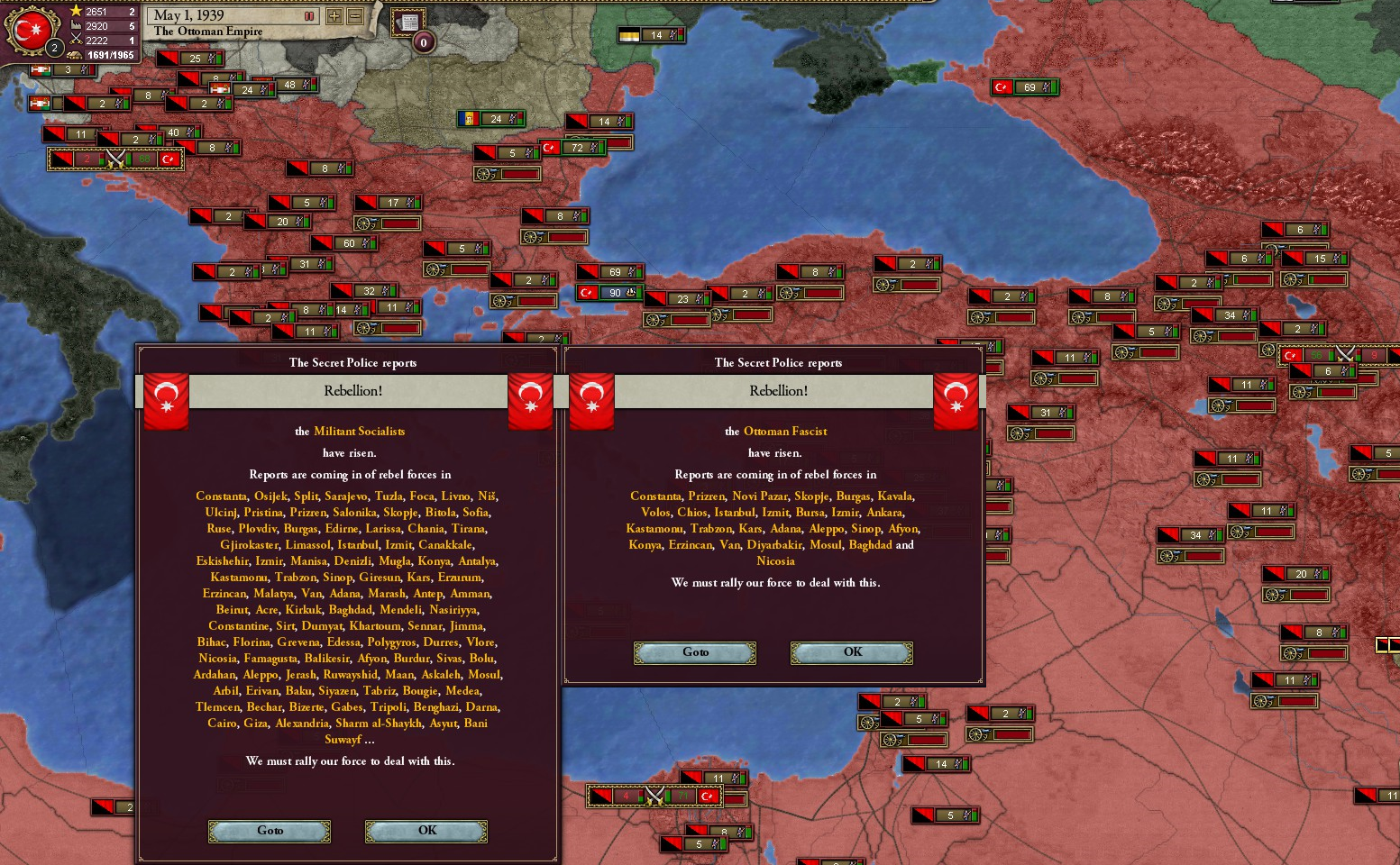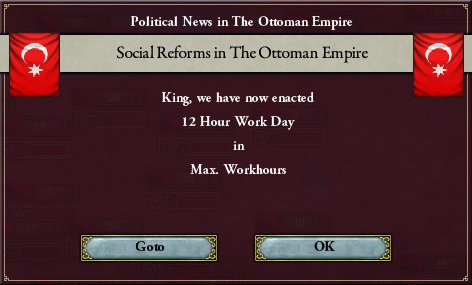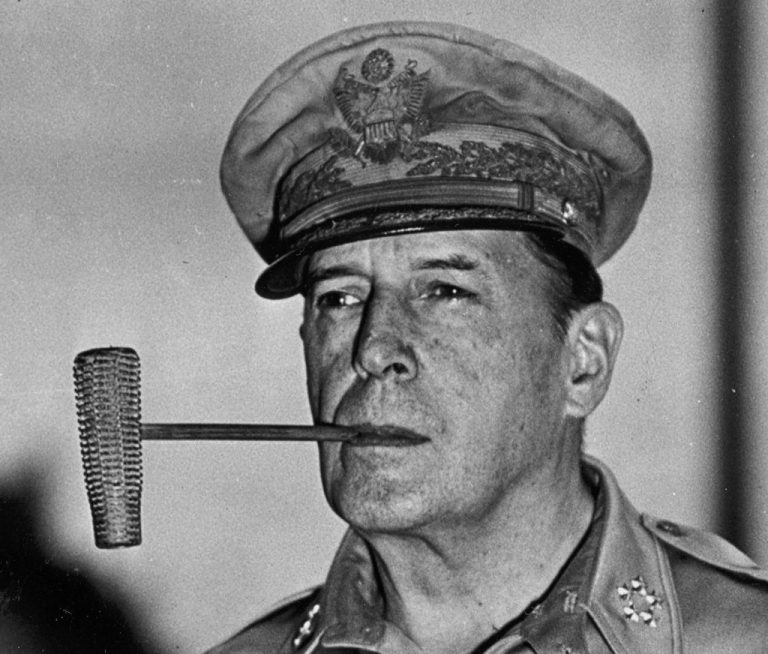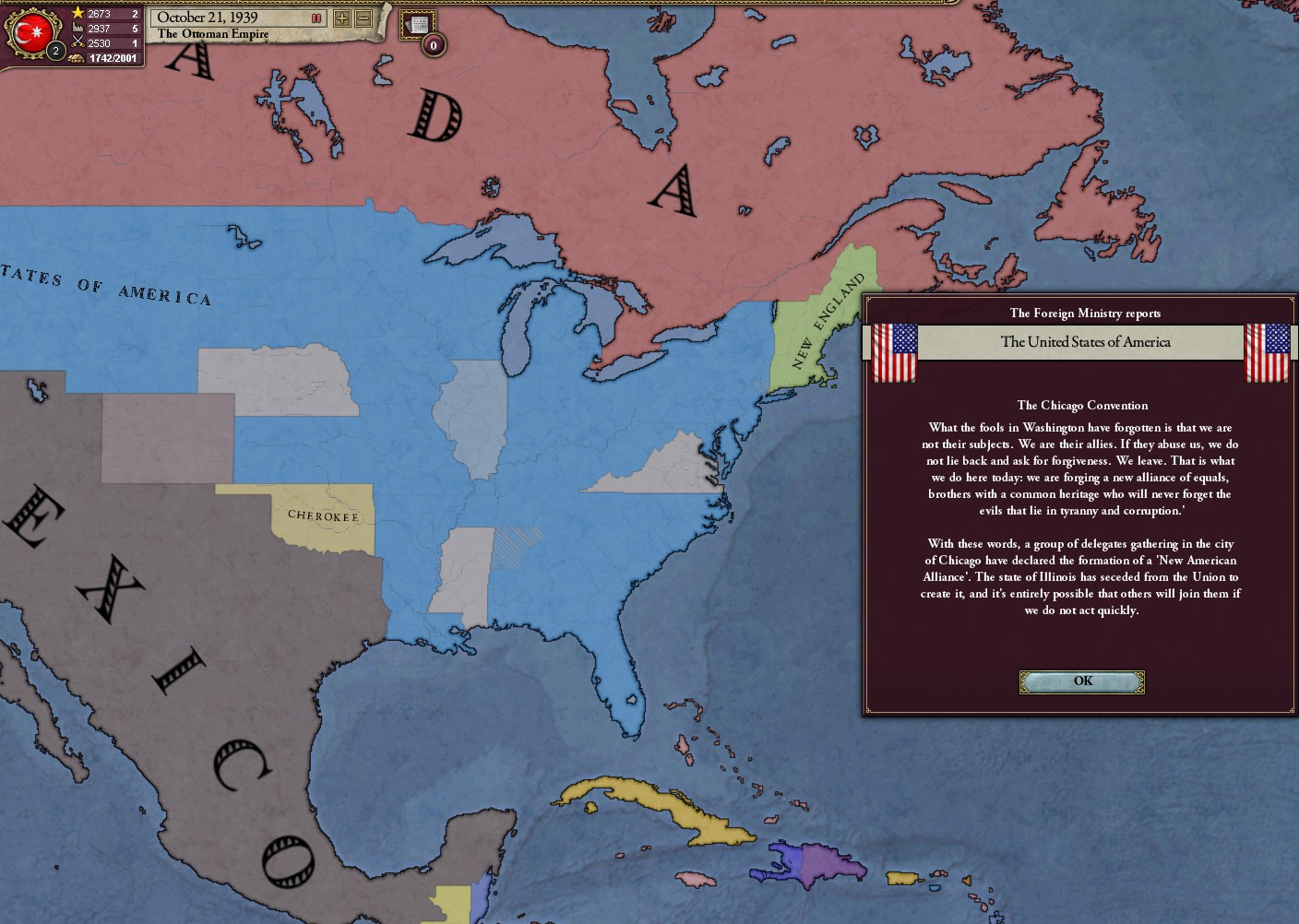Chapter Fifty-Eight: The Caucasian War (Part II)
Chiang Kai-Shek had come to power in China following the death of President Duan Qirui in early 1934, with Chiang’s Kuomintang Faction retaining strong influence there despite the defeat of their military forces whilst under the leadership of Sun Yat-Sen during the early stages of the Warlord Era in China. Duan’s victory in the long civil war had resulted in the destruction and exile or death of most of his rival warlords from within the Beiyang Army, and meant that Chiang’s ascension to power had received little opposition at the time - However, that did not mean that he was especially loved by those in the Chinese military who were suspicious of the Kuomintang’s past support of liberal democracy, and his position had been vulnerable ever since he first took power as a result. This meant that there was already an opposition movement to Chiang forming in China when the Caucasian War had broken out – A movement which was greatly strengthened after an early Chinese offensive into Outer Manchuria met with catastrophic failure at the Battle of Vladivostok in summer 1937. By autumn it was clear the Russian military was vastly outperforming the Chinese forces despite their huge modernisation drives in recent decades, and Chiang’s position therefore began to look more vulnerable as the year went on and the fighting moved onto Chinese soil.
What the Chinese opposition could not necessarily agree on was on who should replace Chiang as leader of China. Nobody wished for a return to the disastrous years of the Warlord Era with different military cliques facing off against one another and renewing the devastation caused by the civil war, so another general seizing power was quickly ruled out. Instead, royalist forces found themselves gaining significant favour from the military as time went by and the military position continued to worsen. The last Qing Emperor, Puyi, had destroyed his reputation during his brief spell as a Japanese puppet emperor in Manchuria before Duan had successfully reannexed the north-eastern province, and though the fact Manchuria was now being invaded by Russian forces could perhaps have earned the Manchu people some sympathy from the rest of China and made a Qing restoration plausible, such a controversial appointment had far too high a risk of backfiring and triggering a period of instability that the army was keen to avoid. The Beiyang generals were also deeply suspicious of Puyi and his family connections with Japan, and so an even more unlikely scenario began to be floated: The restoration of a Han Chinese Emperor for the first time in almost three hundred years.
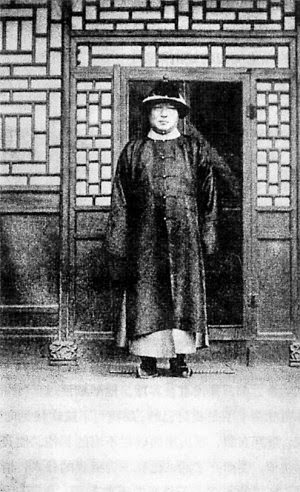
Zhao Yuxun, the Marquis of Extended Grace and descendant of the Ming Dynasty
There were two plausible candidates for the position: The senior descendant of Confucius, known as the Duke of Yansheng… And the last descendant of the last Ming Emperor, who held the title of the Marquis of Extended Grace. The Marquis’ had continued to diligently offer sacrifices at the graves of their ancestors throughout the Qing era in China, and this had not been interrupted during the revolution and the civil war, with their title never being abolished. In winter 1937 this position was held by the forty-five year old Zhu Yuxun, who was the twelfth holder of the office since the fall of the Ming Dynasty. Although Zhu Yuxun had been educated alongside the exiled and discredited Puyi, he had remained in Beijing during the latter’s Japanese escapade in Manchukuo, and had managed to win himself some high placed friends during the regime of Duan Qirui. And so in December 1937, with Russian forces occupying swathes of Manchuria and Inner Mongolia and occasional air raids taking place over Beijing itself, the royalist uprising began – Declaring a restoration of the Ming Empire and crowning Zhu Yuxun as the 'Hongxian Emperor'.
The royalists rapidly seized control of Beijing and much of Northern China and took President Chiang into custody, but forces loyal to the Kuomintang continued to fight on across much of the South under the leadership of Chiang’s deputy Zhang Qun. Meanwhile the frontline against the Russians completely imploded through spring 1938 as the Russians were able to march unopposed into Xinjiang, Qinghai, and much of Northern & Western China while the battle for supremacy continued throughout China. The very instability that the army had hoped to avoid was coming to pass, even if Chiang himself had lacked the popularity to engender much support in the north, and Zhang Qun even less so. The royalist forces were clearly winning the war, but it was certainly coming at great cost due to the Russian advance.
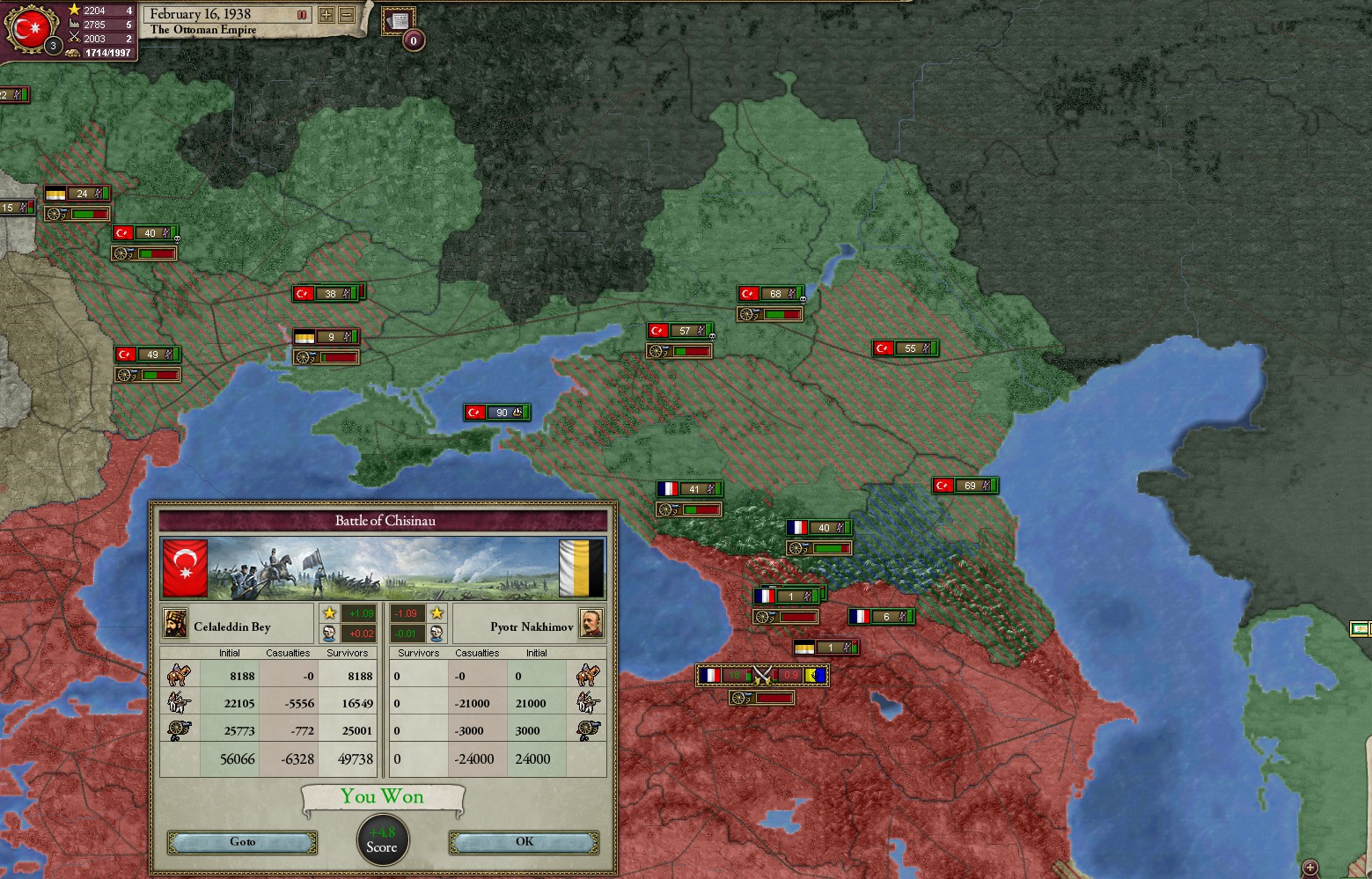
The Ottoman Spring Offensive in Ukraine and Circassia (Spring 1938)
For the Sublime Porte, the Chinese descent into chaos was an unwelcome stream of bad news, but despite the massive Russian victories in the east, it was not one which could fundamentally change the balance of the war. The Russians had been driven out of Ottoman territory in the winter of 1937, and a desperate Russian attempt to defend the city of Odessa led by General Sergei Badanov was crushed by Namik Pasha’s 5th Army in January 1938, leaving the Bessarabian Front wide open to Ottoman forces by February, as the Porte began planning a huge spring offensive to knock the Russians out of the war. In the Caucasian Theatre too, the Russians found themselves being driven back across the front – With the Ottoman armoured formations in Circassia able to cut the Russian supply lines to the mountains, and the French Expeditionary Forces then rounding the remaining Russians units up and forcing them to surrender. Indeed after a Russian counter-attack was repulsed at Chisinau in early February there were almost no Russian forces left against our troops, and the whole of European Russia appeared open and vulnerable to allied forces...
And so the great Ottoman Spring Offensive of 1938 began with the Porte in an upbeat mood, but even the most optimistic of ministers could not have predicted how it would turn out. Russian resistance was crushed in Ukraine in March 1931 and by the end of the month the city of Rostov on the coast of the Sea of Azov had fallen as lightning warfare came to Southern Russia. Grand Vizier Rauf Bey used the occasion to demand the entirety of Circassia, or the Russian state of Ekaterinodar, be ceded to the Porte in any peace deal – enraging the Russian Duma who had sent out peace feelers in the week before this pronouncement. Were the Russians counting on our forces becoming over-extended and allowing them to counter-attack though then they were soon to find themselves extremely disappointed. City after city fell through April and May as Ottoman forces pushed into regions of Russia they hadn’t reached in centuries – and then regions of Russia they had never reached in history at all. Luhansk, Tambov, Ryazan, Voronets, and Tula fell in quick succession as spring went by. The first warning the Russian people would get would be the buzzing of our aircraft as the Basak Sahin divebombers obliterated what little defences they could muster together on the highways, and almost as soon as the air raids were over, Sipahi tanks would roll in and mop up anything that was left over, before the motorised infantry arrived to secure the area. Lightning Warfare had truly arrived, and the Tsar could muster no response to it.
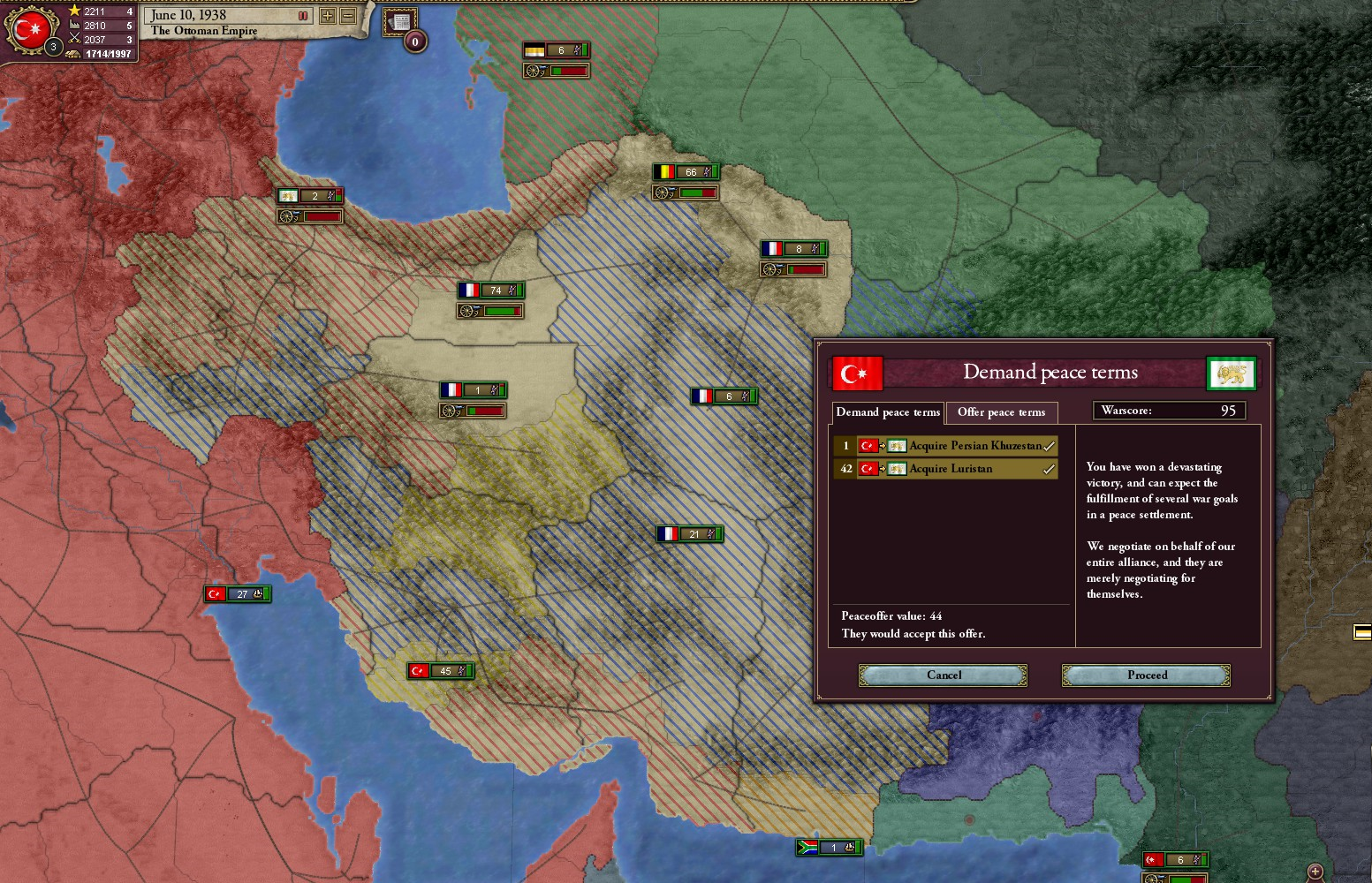
The Persian Government surrenders to the Sublime Porte (June 10th 1938)
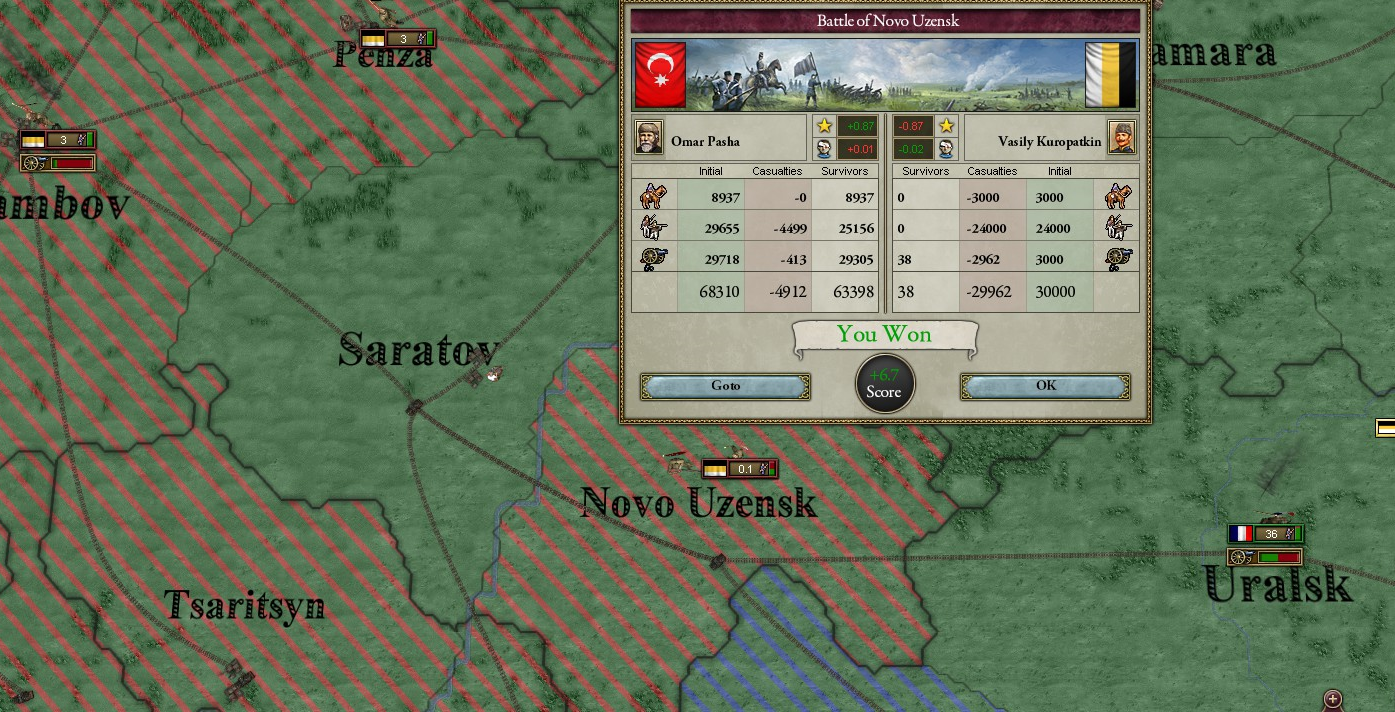
The Russian counter-attack at Novo Uzensk is defeated (June 1938)
The situation was no different in Persia, where the opposition forces had already been all but eliminated by the end of 1937 and where Ottoman and French forces had seized control of almost the entire country by June 1938. When the Persian government had fled to Russia they had initially refused to surrender, hoping that a Russian counter-attack could yet salvage something from the war, and taking heart from the Russian advances into China. This hope would wear away through 1938 as more and more Russian territory fell into Ottoman hands, and the Persians realised that there would be no escape for them this time. On June 10th 1938, with the writing on the wall for the Russian war-effort – let alone the Persian – the Persian government officially surrendered, signing the Treaty of Tehran while surrounded by Ottoman tanks in the Persian capital itself, and ceding the city of Bushire and the western state of Luristan to the Ottoman Empire, as well as giving an official apology for Persian secret service agents causing the explosion at Bushire Harbour that had triggered the conflict in the first place.
Humiliating though the treaty and the circumstances of its signing had been for the Persians, it was nothing compared to what was facing the Russians. The Great Retreat in Russia had continued apace despite the Duma scraping together what remaining forces it could find to try and stop the Ottoman advance. A last desperate counter-attack by the Russian forces was destroyed at the Battle of Novo Uzensk in early June, and on June 20th 1938 the unthinkable happened: The Ottoman Flag was seen flying over the Kremlin, as Omar Pasha’s 4th Army rolled into Moscow almost without opposition. The Tsar and the government had already fled to Petrograd, but the symbolic moment was unmistakeable nonetheless. Thirty years since Russian forces had briefly occupied Constantinople at the end of the catastrophic First Great War, our great foe had been vanquished and vengeance had been achieved. One week later the Russian surrender was officially accepted (Again taking place in Moscow itself), with Tsar Nikolai III and Prime Minister Noe Zhordiana signing the document in the presence of Sultan Abdulmejid II, Grand Vizier Rauf Bey, Deputy Vizier Mustafa Ismet Pasha, and French War Minister Pierre-Etienne Flandin. The Caucasian War had lasted just over thirteen months, and the allied victory was absolute.
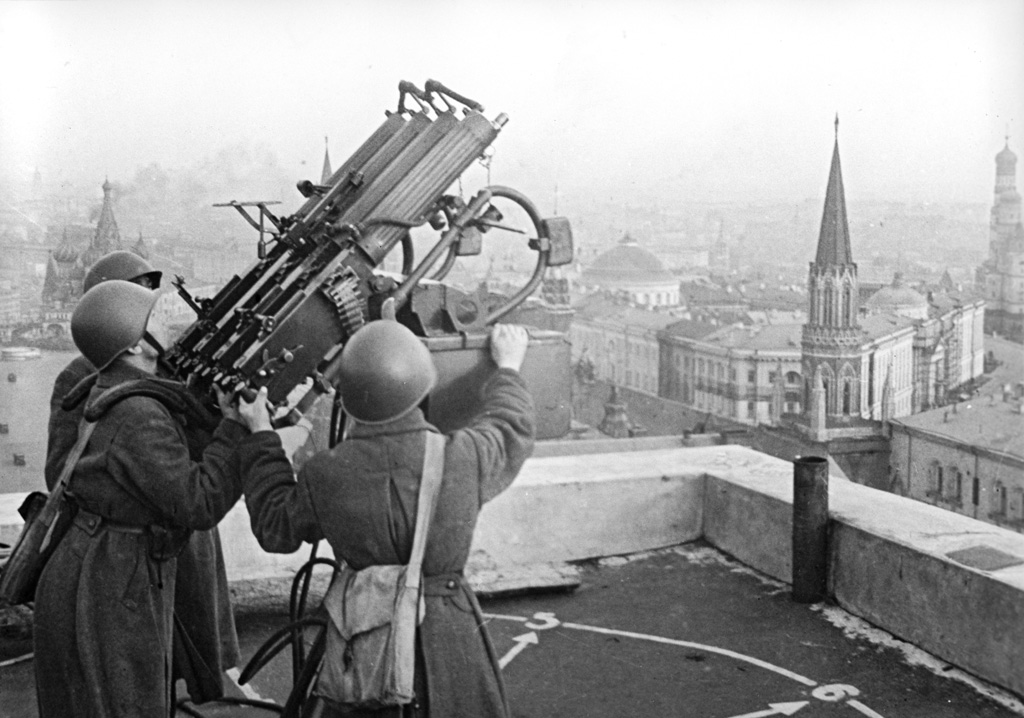
Russian defences at the Battle of Moscow (June 1938)
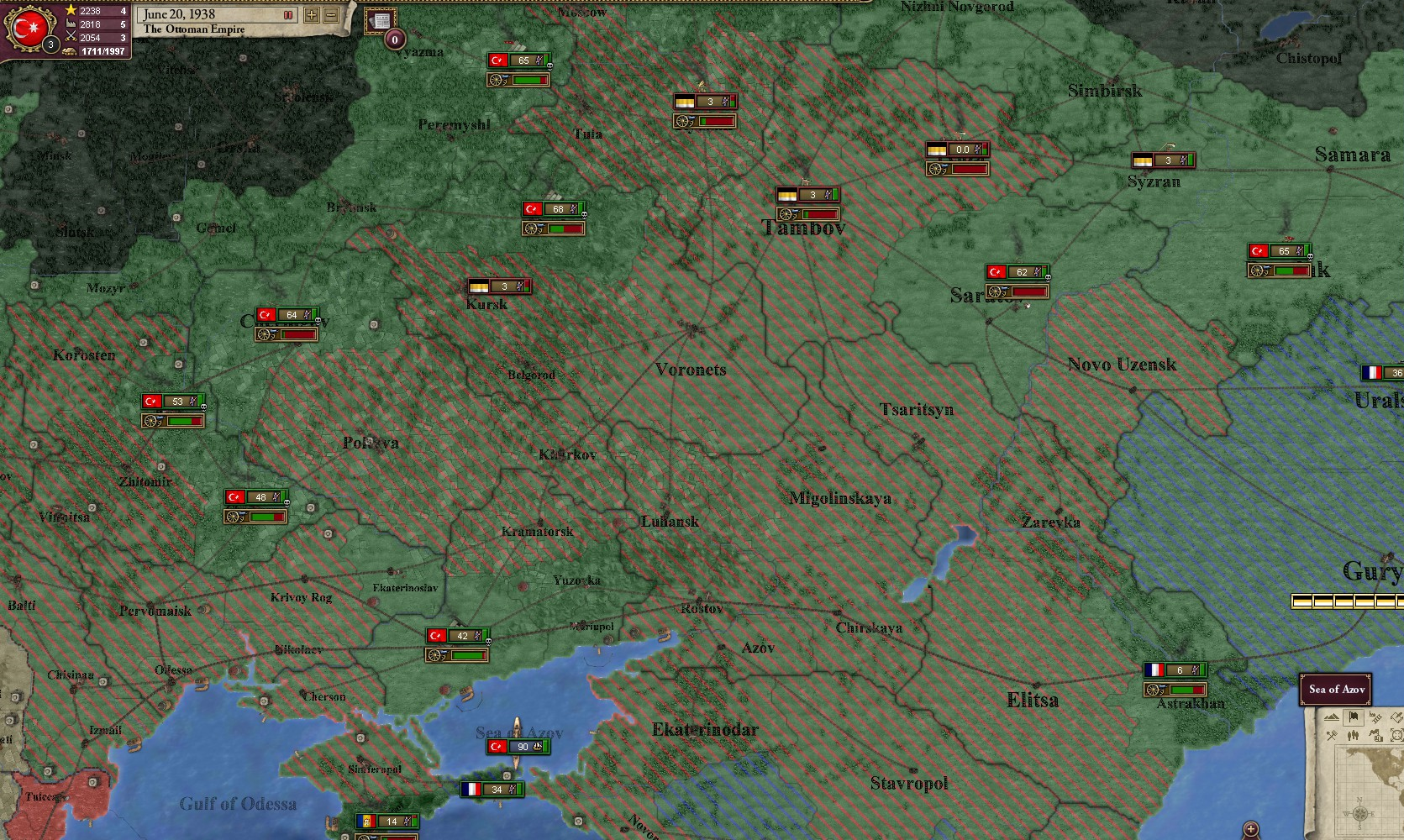
The Fall of Moscow leads to the Russian Surrender (June 20th 1938)
When it came to the spoils, many in the Ottoman Parliament had demanded nothing less than the total dismantling of the Russian Empire, with the Young Turks calling for Ottoman control of the entirety of Central Asia and the final achievement of their Pan-Turkic ideals - Something which had never seemed more plausible than now. Sosyal Demokrat Grand Vizier Rauf Bey was however constrained by his coalition with the socialists, who had always been lukewarm about the prospect of the war and for whom continued fighting to enforce such a harsh peace treaty was a completely unacceptable proposal. With the opposition Liberals also opposed to such a gigantic rewriting of the map, and more importantly the French also signalling an opposition to such a drastic change of borders, a more acceptable peace offer was made. In the end, the Porte demanded only the Russian states of Ekaterinodar and North Caucasia as they had previously announced, along with demanding the total withdrawal of Russian forces from occupied China. Circassia was to be Ottoman for the first time in over a century, since the Treaty of Adrianople at the end of the Russo-Turkish War of 1828-29. Victory was ours.
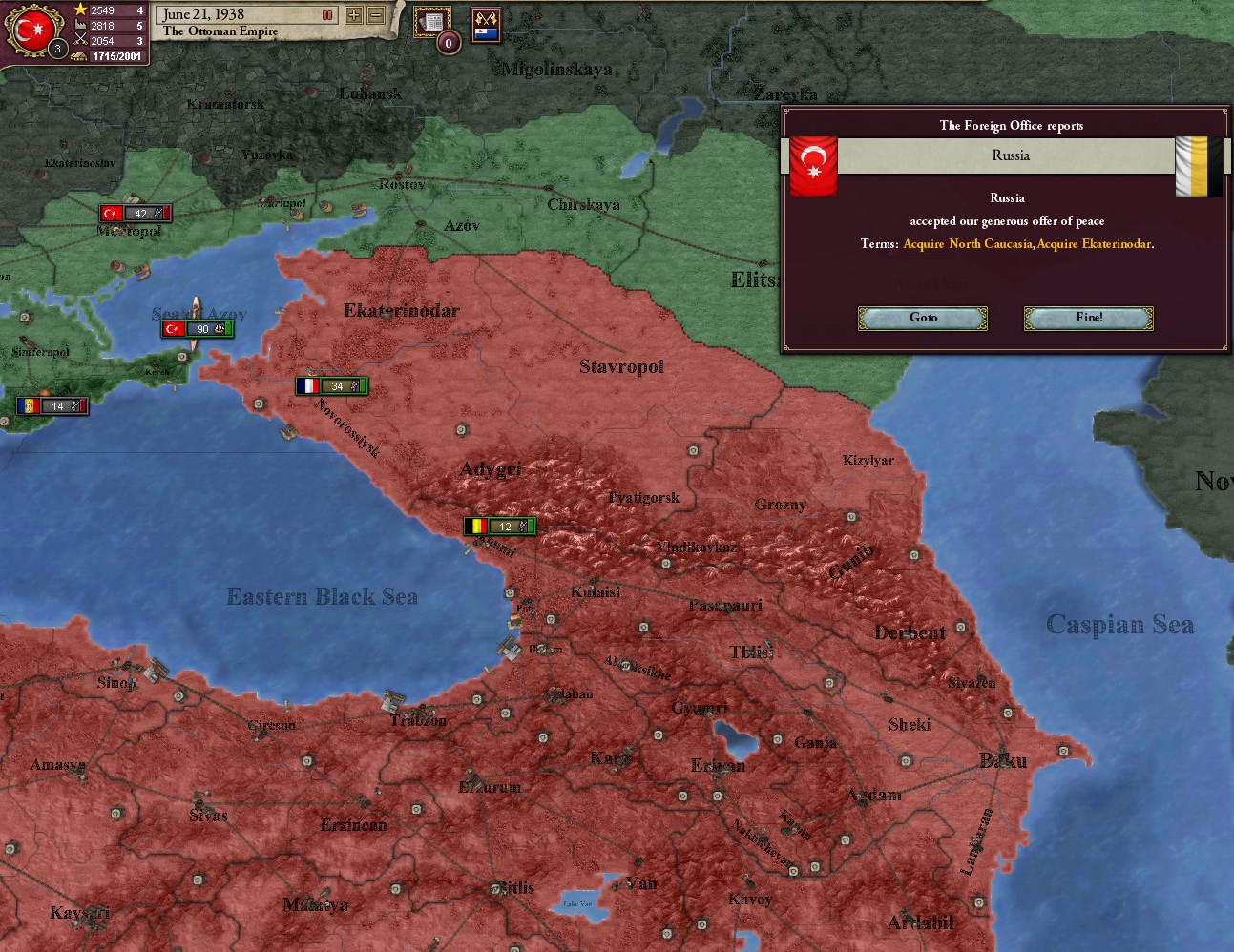
Circassia is restored to Ottoman rule following the Russian Surrender (June 21st 1938)
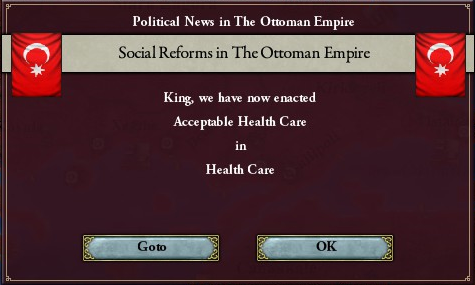
The Sublime Porte increases the healthcare budget following our victory in the Caucasian War (June 30th 1938)
The withdrawal of the Russians from China had also cleared the war for the royalist forces to secure complete control of the country and international recognition for the restored Ming Empire swiftly followed - led by the Sublime Porte; as Grand Vizier Rauf Bey was keen to continue and strengthen the Sino-Ottoman Alliance - despite the poor Chinese military performance in the war. Rauf Bey knew that despite the military defeats they had suffered, China had forced the Russians to commit significant numbers to the Far East even as Ottoman forces had approached Moscow, and that without the Chinese sacrifices it would have been many more Ottoman soldiers who would have had to die to make the capture of Moscow and the scale of our victory achievable. Grand Vizier Rauf Bey met with the Hongxian Emperor in Beijing in August 1938 after his coronation to officially renew the friendship between our nations, thanking the Chinese people for their sacrifices in the war and pledging an unprecedented level of Ottoman investment to help China recover from the scars of the war and continue its march toward modernisation. The Emperor himself was very keen to see Ottoman money aid the Chinese recovery after the economic damage inflicted during the Russian occupation and the brief civil war against the Kuomintang Faction, and he was able to strike a strong rapport with the Grand Vizier on a personal level too. Far from the puppet Emperor that the military had initially envisioned, the Hongxian Emperor had quickly gained popularity with the Chinese people at large by dismissing the generals responsible for the poor war effort and instituting a series of laws to increase the size of the Chinese welfare state, with the restored Ming Dynasty centralising power in the bureaucracy in a way that almost suggested the years of revolution had never happened. The Chinese Dragon may have stumbled during this conflict, but its upward trend had surely not been halted.
Meanwhile back in the Empire, the Sublime Porte also passed a new law greatly expanding the Ottoman health service in the aftermath of the war amid jubilations in the street, and 1938 became a year of great celebration across the Empire – With even a brief South German rebellion in Slavonia unable to quell the mood of the populace - or to prevent its swift annihilation by the Ottoman military. Street parties following the Russian surrender had continued throughout the summer and the Porte would be pleased to note a resulting baby boom in the coming months, as victorious soldiers were welcomed home as heroes and lavish ceremonies honouring men both living and dead were carried out. Formation flights over cities struck such popularity that the modern air shows were born in the Empire in the Autumn of 1938 as 'The Magnificent Men' who had so daringly destroyed the Russian air force became people of legend. And so, with both Grand Vizier Rauf Bey and Deputy Vizier Mustafa Ismet Pasha enjoying levels of popularity not seen since the era of Pertev Pasha and the end of the Third Great War, surely nothing could stop these twin political forces from romping to victory in the upcoming elections…
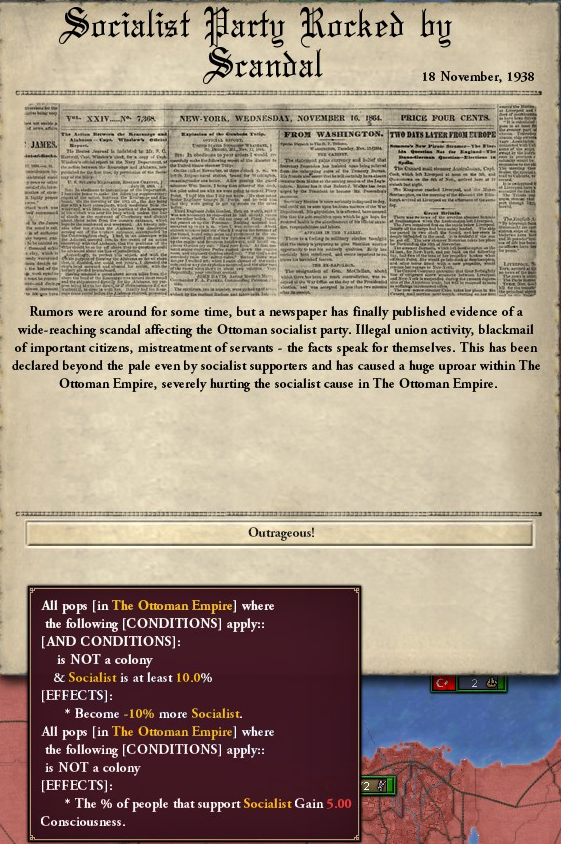
The Osmanli Ahali Firkasi becomes engulfed in a political scandal during the election campaign (November 18th 1938)
What the Chinese opposition could not necessarily agree on was on who should replace Chiang as leader of China. Nobody wished for a return to the disastrous years of the Warlord Era with different military cliques facing off against one another and renewing the devastation caused by the civil war, so another general seizing power was quickly ruled out. Instead, royalist forces found themselves gaining significant favour from the military as time went by and the military position continued to worsen. The last Qing Emperor, Puyi, had destroyed his reputation during his brief spell as a Japanese puppet emperor in Manchuria before Duan had successfully reannexed the north-eastern province, and though the fact Manchuria was now being invaded by Russian forces could perhaps have earned the Manchu people some sympathy from the rest of China and made a Qing restoration plausible, such a controversial appointment had far too high a risk of backfiring and triggering a period of instability that the army was keen to avoid. The Beiyang generals were also deeply suspicious of Puyi and his family connections with Japan, and so an even more unlikely scenario began to be floated: The restoration of a Han Chinese Emperor for the first time in almost three hundred years.

Zhao Yuxun, the Marquis of Extended Grace and descendant of the Ming Dynasty
The royalists rapidly seized control of Beijing and much of Northern China and took President Chiang into custody, but forces loyal to the Kuomintang continued to fight on across much of the South under the leadership of Chiang’s deputy Zhang Qun. Meanwhile the frontline against the Russians completely imploded through spring 1938 as the Russians were able to march unopposed into Xinjiang, Qinghai, and much of Northern & Western China while the battle for supremacy continued throughout China. The very instability that the army had hoped to avoid was coming to pass, even if Chiang himself had lacked the popularity to engender much support in the north, and Zhang Qun even less so. The royalist forces were clearly winning the war, but it was certainly coming at great cost due to the Russian advance.

The Ottoman Spring Offensive in Ukraine and Circassia (Spring 1938)
For the Sublime Porte, the Chinese descent into chaos was an unwelcome stream of bad news, but despite the massive Russian victories in the east, it was not one which could fundamentally change the balance of the war. The Russians had been driven out of Ottoman territory in the winter of 1937, and a desperate Russian attempt to defend the city of Odessa led by General Sergei Badanov was crushed by Namik Pasha’s 5th Army in January 1938, leaving the Bessarabian Front wide open to Ottoman forces by February, as the Porte began planning a huge spring offensive to knock the Russians out of the war. In the Caucasian Theatre too, the Russians found themselves being driven back across the front – With the Ottoman armoured formations in Circassia able to cut the Russian supply lines to the mountains, and the French Expeditionary Forces then rounding the remaining Russians units up and forcing them to surrender. Indeed after a Russian counter-attack was repulsed at Chisinau in early February there were almost no Russian forces left against our troops, and the whole of European Russia appeared open and vulnerable to allied forces...
And so the great Ottoman Spring Offensive of 1938 began with the Porte in an upbeat mood, but even the most optimistic of ministers could not have predicted how it would turn out. Russian resistance was crushed in Ukraine in March 1931 and by the end of the month the city of Rostov on the coast of the Sea of Azov had fallen as lightning warfare came to Southern Russia. Grand Vizier Rauf Bey used the occasion to demand the entirety of Circassia, or the Russian state of Ekaterinodar, be ceded to the Porte in any peace deal – enraging the Russian Duma who had sent out peace feelers in the week before this pronouncement. Were the Russians counting on our forces becoming over-extended and allowing them to counter-attack though then they were soon to find themselves extremely disappointed. City after city fell through April and May as Ottoman forces pushed into regions of Russia they hadn’t reached in centuries – and then regions of Russia they had never reached in history at all. Luhansk, Tambov, Ryazan, Voronets, and Tula fell in quick succession as spring went by. The first warning the Russian people would get would be the buzzing of our aircraft as the Basak Sahin divebombers obliterated what little defences they could muster together on the highways, and almost as soon as the air raids were over, Sipahi tanks would roll in and mop up anything that was left over, before the motorised infantry arrived to secure the area. Lightning Warfare had truly arrived, and the Tsar could muster no response to it.

The Persian Government surrenders to the Sublime Porte (June 10th 1938)

The Russian counter-attack at Novo Uzensk is defeated (June 1938)
The situation was no different in Persia, where the opposition forces had already been all but eliminated by the end of 1937 and where Ottoman and French forces had seized control of almost the entire country by June 1938. When the Persian government had fled to Russia they had initially refused to surrender, hoping that a Russian counter-attack could yet salvage something from the war, and taking heart from the Russian advances into China. This hope would wear away through 1938 as more and more Russian territory fell into Ottoman hands, and the Persians realised that there would be no escape for them this time. On June 10th 1938, with the writing on the wall for the Russian war-effort – let alone the Persian – the Persian government officially surrendered, signing the Treaty of Tehran while surrounded by Ottoman tanks in the Persian capital itself, and ceding the city of Bushire and the western state of Luristan to the Ottoman Empire, as well as giving an official apology for Persian secret service agents causing the explosion at Bushire Harbour that had triggered the conflict in the first place.
Humiliating though the treaty and the circumstances of its signing had been for the Persians, it was nothing compared to what was facing the Russians. The Great Retreat in Russia had continued apace despite the Duma scraping together what remaining forces it could find to try and stop the Ottoman advance. A last desperate counter-attack by the Russian forces was destroyed at the Battle of Novo Uzensk in early June, and on June 20th 1938 the unthinkable happened: The Ottoman Flag was seen flying over the Kremlin, as Omar Pasha’s 4th Army rolled into Moscow almost without opposition. The Tsar and the government had already fled to Petrograd, but the symbolic moment was unmistakeable nonetheless. Thirty years since Russian forces had briefly occupied Constantinople at the end of the catastrophic First Great War, our great foe had been vanquished and vengeance had been achieved. One week later the Russian surrender was officially accepted (Again taking place in Moscow itself), with Tsar Nikolai III and Prime Minister Noe Zhordiana signing the document in the presence of Sultan Abdulmejid II, Grand Vizier Rauf Bey, Deputy Vizier Mustafa Ismet Pasha, and French War Minister Pierre-Etienne Flandin. The Caucasian War had lasted just over thirteen months, and the allied victory was absolute.

Russian defences at the Battle of Moscow (June 1938)

The Fall of Moscow leads to the Russian Surrender (June 20th 1938)

Circassia is restored to Ottoman rule following the Russian Surrender (June 21st 1938)

The Sublime Porte increases the healthcare budget following our victory in the Caucasian War (June 30th 1938)
The withdrawal of the Russians from China had also cleared the war for the royalist forces to secure complete control of the country and international recognition for the restored Ming Empire swiftly followed - led by the Sublime Porte; as Grand Vizier Rauf Bey was keen to continue and strengthen the Sino-Ottoman Alliance - despite the poor Chinese military performance in the war. Rauf Bey knew that despite the military defeats they had suffered, China had forced the Russians to commit significant numbers to the Far East even as Ottoman forces had approached Moscow, and that without the Chinese sacrifices it would have been many more Ottoman soldiers who would have had to die to make the capture of Moscow and the scale of our victory achievable. Grand Vizier Rauf Bey met with the Hongxian Emperor in Beijing in August 1938 after his coronation to officially renew the friendship between our nations, thanking the Chinese people for their sacrifices in the war and pledging an unprecedented level of Ottoman investment to help China recover from the scars of the war and continue its march toward modernisation. The Emperor himself was very keen to see Ottoman money aid the Chinese recovery after the economic damage inflicted during the Russian occupation and the brief civil war against the Kuomintang Faction, and he was able to strike a strong rapport with the Grand Vizier on a personal level too. Far from the puppet Emperor that the military had initially envisioned, the Hongxian Emperor had quickly gained popularity with the Chinese people at large by dismissing the generals responsible for the poor war effort and instituting a series of laws to increase the size of the Chinese welfare state, with the restored Ming Dynasty centralising power in the bureaucracy in a way that almost suggested the years of revolution had never happened. The Chinese Dragon may have stumbled during this conflict, but its upward trend had surely not been halted.
Meanwhile back in the Empire, the Sublime Porte also passed a new law greatly expanding the Ottoman health service in the aftermath of the war amid jubilations in the street, and 1938 became a year of great celebration across the Empire – With even a brief South German rebellion in Slavonia unable to quell the mood of the populace - or to prevent its swift annihilation by the Ottoman military. Street parties following the Russian surrender had continued throughout the summer and the Porte would be pleased to note a resulting baby boom in the coming months, as victorious soldiers were welcomed home as heroes and lavish ceremonies honouring men both living and dead were carried out. Formation flights over cities struck such popularity that the modern air shows were born in the Empire in the Autumn of 1938 as 'The Magnificent Men' who had so daringly destroyed the Russian air force became people of legend. And so, with both Grand Vizier Rauf Bey and Deputy Vizier Mustafa Ismet Pasha enjoying levels of popularity not seen since the era of Pertev Pasha and the end of the Third Great War, surely nothing could stop these twin political forces from romping to victory in the upcoming elections…

The Osmanli Ahali Firkasi becomes engulfed in a political scandal during the election campaign (November 18th 1938)
Last edited:
- 4
- 1


